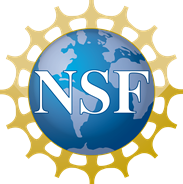
November 26 - December 1, 2023
Boston, Massachusetts
Symposium Supporters
2023 MRS Fall Meeting & Exhibit
Symposium DS03-Emerging Challenges and Opportunities in Materials by Design
This symposium will cover the challenges and emerging opportunities in machine learning for materials design. Given the exponential growth of this field in the past few years, this symposium will provide a forum for the community to evaluate and discuss the grand challenges and opportunities in methods and algorithms for data-driven materials design. Topics of discussion will include problems for which existing methods fail or remain inadequate, and areas of materials by design that have not been addressed to date. These grand challenges will be considered both from the perspective of methodology and applications. Core topics will include emerging technologies such as human-out-of-the-loop design, application-driven design, forward and inverse design from atoms to devices for healthcare, energy, quantum computing and other applications, and data-centric design, including advances in digital transformation in academia and industry. Emphasis will be placed also on methods for bridging both time and length scales in the design process.
Topics will include:
- Data-driven inverse design of materials and molecules
- Novel machine learning methods for materials research
- Feature representations including dimensionality reduction and topological descriptors
- Knowledge extraction and model interpretability
- Approaches to bridging length and time scales to enable atomic to microscale and realistic time scale simulations
- Approaches to handling data scarcity in physical sciences, including transfer and active learning, multi-fidelity models etc.
- Data management and creation of databases, including infrastructure, data standardization, and FAIR principles
- Addressing application-specific materials design challenges
- Application of machine learning methods to discover and design functional and structural materials.
Invited Speakers:
- Niaz Abdolrahim (University of Rochester, USA)
- Sneha Akhade (Lawrence Livermore National Laboratory, USA)
- Amir Barati Farimani (Carnegie Mellon University, USA)
- Simon Billinge (Columbia University, USA)
- Adji Bousso Dieng (Princeton University, USA)
- Tonio Buonassisi (Massachusetts Institute of Technology, USA)
- Maria Chan (Argonne National Laboratory, USA)
- Aurora Clark (University of Utah, USA)
- Ekin Dogus Cubuk (Google Brain, USA)
- Volker Deringer (University of Oxford, United Kingdom)
- Claudia Draxl (Humboldt-Universität zu Berlin, Germany)
- Ayana Ghosh (Oak Ridge National Laboratory, USA)
- Anna Hiszpanski (Lawrence Livermore National Laboratory, USA)
- Yousung Jung (Seoul National University, Republic of Korea)
- Heather Kulik (Massachusetts Institute of Technology, USA)
- Rebecca Lindsey (University of Michigan, USA)
- Elsa Olivetti (Massachusetts Institute of Technology, USA)
- Shyue Ping Ong (University of California, San Diego, USA)
- Ghanshyam Pilania (Los Alamos National Laboratory, USA)
- Mary Scott (University of California, Berkeley, USA)
- Kristen Severson (Microsoft Research, USA)
- Taylor Sparks (University of Utah, USA)
- Koji Tsuda (University of Tokyo, Japan)
- Aron Walsh (Imperial College London, United Kingdom)
- James Warren (National Institute of Standards and Technology, USA)
Symposium Organizers
Qian Yang
University of Connecticut
USA
James Chapman
Boston University
USA
Victor Fung
Georgia Institute of Technology
USA
Prashun Gorai
Colorado School of Mines
USA




-2.tmb-mtg_rel_ad.png?Culture=en&sfvrsn=a4240c09_1)

























